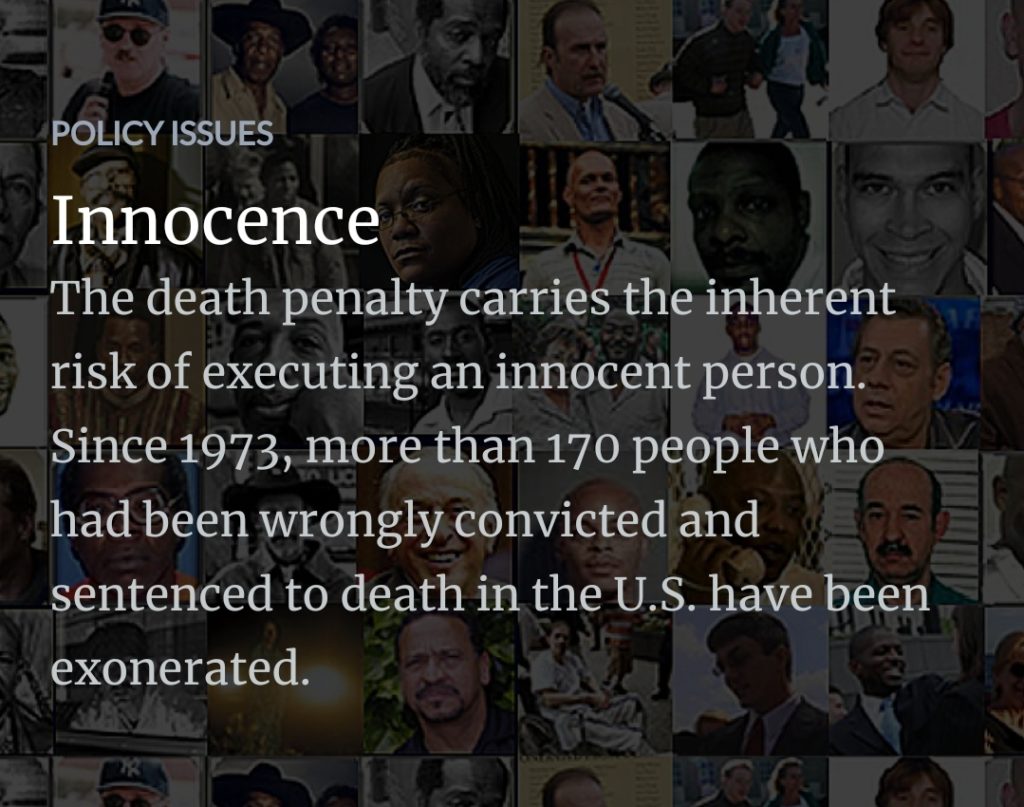
OVERVIEW
“Given the fallibility of human judgment, there has always been the danger that an execution could result in the killing of an innocent person. Nevertheless, when the U.S. Supreme Court held the administration of the death penalty to be unconstitutional in 1972, there was barely any mention of the issue of innocence in the nine opinions issued. Although mistakes were surely made in the past, the assumption prevailed that such cases were few and far between. Almost everyone on death row was surely guilty.
However, as federal courts began to more thoroughly review whether state criminal defendants were afforded their guaranteed rights to due process, errors and official misconduct began to regularly appear, requiring retrials. When defendants were now afforded more experienced counsel, with fairly selected juries, and were granted access to scientific testing, some were acquitted and released. Since 1973, 172 former death-row prisoners have been exonerated of all charges related to the wrongful convictions that had put them on death row.”
Please visit the DPIC Database for more info:
https://deathpenaltyinfo.org/policy-issues/innocence